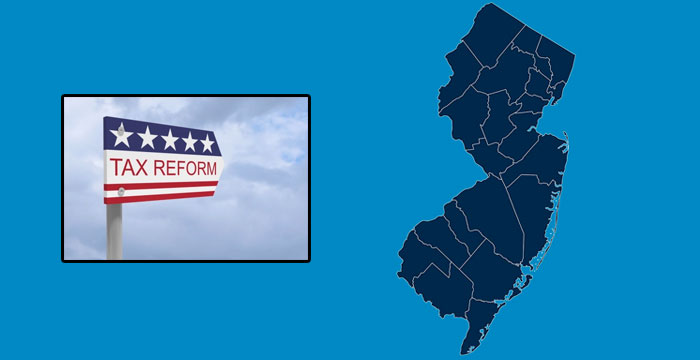Tax Cuts & Jobs Act: How Will it Affect New Jersey Residents?

On December 22, President Trump signed into law a sweeping tax bill drafted by Republicans in the House and Senate. It was his first major legislative accomplishment since entering the White House, and it will have far-reaching effects.
But how will the new Tax Cuts and Jobs Act, as it’s known, affect residents of New Jersey in particular? Here’s an updated look at the key provisions of this bill, and how they might impact New Jersey residents.
How the Tax Cut Bill Could Affect New Jersey Residents
There’s a lot in this bill. The PDF version weighs in at nearly 200 pages. Below, we’ve zeroed in on some of the key provisions that could affect residents of New Jersey.
A smaller mortgage interest deduction: Republicans in the House and Senate went back and forth over the mortgage interest deduction. Here’s what they’ve settled on: Under the Tax Cuts and Jobs Act, New Jersey homeowners can deduct any interest they pay on up to $750,000 worth of a mortgage loan. That’s a reduction from the previous cap of $1 million. This change will apply to new loans — mortgages that existed before the new legislation took effect should be unaffected.
A $10,000 deduction in state, local and property taxes: Throughout the debate process, this was one of the most controversial parts of the Republican-led tax plan. That’s because it significantly scales back on how much state and local taxes Americans can deduct from their federal income taxes. Under the previous law, the state and local deduction (or “SALT”) was unlimited. Going forward, however, people can deduct up to $10,000. Married couples are also limited to that amount. This aspect of the tax plan could affect a lot of New Jersey residents, many of whom benefited from the larger deductions that were allowed in the past.
Fewer families will have to pay the individual AMT: According to TurboTax, “the Alternative Minimum Tax (AMT) was designed to keep wealthy taxpayers from using loopholes to avoid paying taxes.” It applies to Americans with income levels above a certain threshold. The AMT will remain in place under the new tax plan, but it will undergo major changes. Under previous law, the AMT applied to individuals earning over $120,700, and married couples earning more than $160,900. The Tax Cuts and Jobs Act will raise that threshold to $500,000 for individuals, and $1 million for married couples.
A bigger child tax credit for some families: Senators Marco Rubio and Mike Lee pushed for, and secured, a more generous child tax credit for low-income families and the working class. The previous child tax credit was limited to $1,000 per child. The Tax Cuts and Jobs Act allows for a credit of $2,000 per child. It also makes more of the credit refundable, so those families that work but don’t earn enough to actually owefederal income taxes could still receive a check from the government.
Noteworthy: Both NJ Senators Opposed the Bill
There’s an important footnote to all of this. Both of New Jersey’s senators opposed the tax reform legislation. Senators Cory Booker and Robert Menendez voted against the bill, and for similar reasons.
According to Mr. Menendez, who is also a member of the Senate Finance Committee: “As bad as this bill is for the entire country, it’s particularly worse for New Jersey, threatening to derail investments in education, infrastructure, law enforcement, public health and other job-creating priorities.”
Likewise, Senator Booker said that “New Jersey families and communities will be among the hardest hit, with potentially long-lasting effects on services, property value, education, and public safety.”
On December 19, Senator Booker also tweeted that the majority of his constituents opposed the bill. His office received more than 54,000 letters relating to the Republican-led tax reform. Of those, 97.2% opposed the new bill. Only 2.8% of the letter writers supported the bill.
Politics aside, the one thing that’s undeniable is that the new tax plan will affect many New Jersey residents. Property taxes in our state are among the highest in the country. So many homeowners rely heavily on deductions such as those for income and property taxes. A lower cap for such deductions could affect the bottom line for many residents.